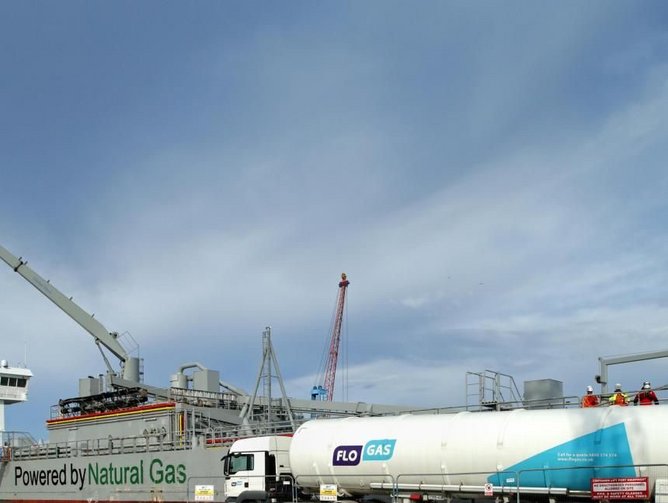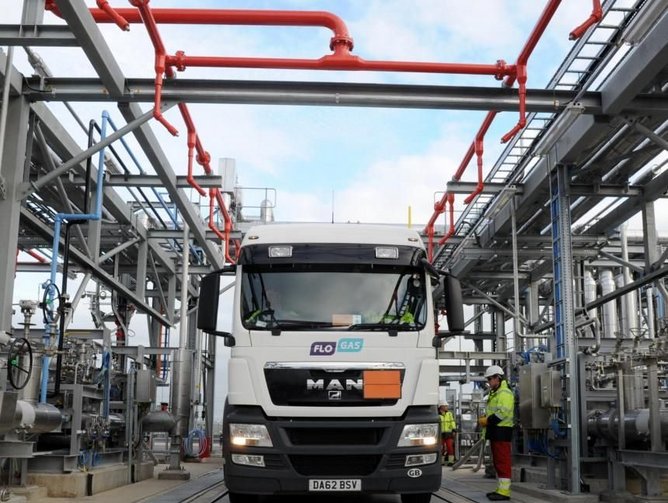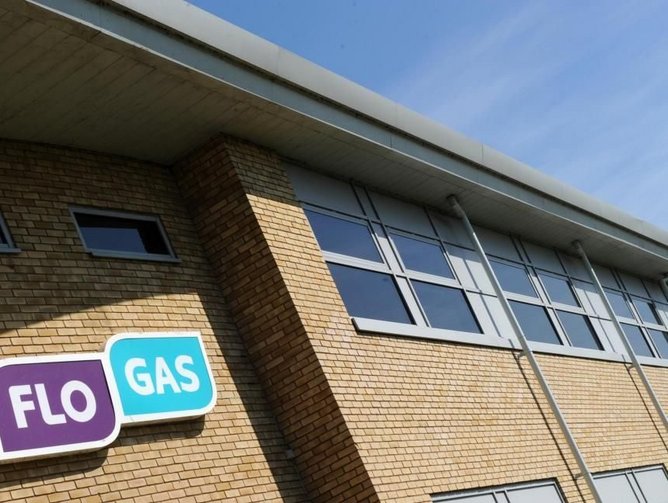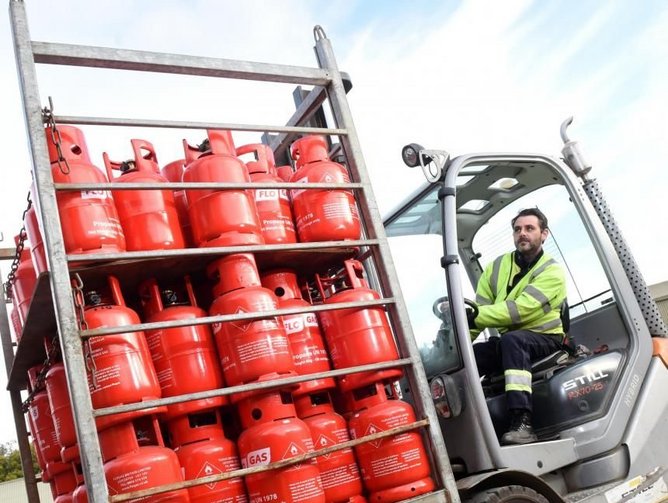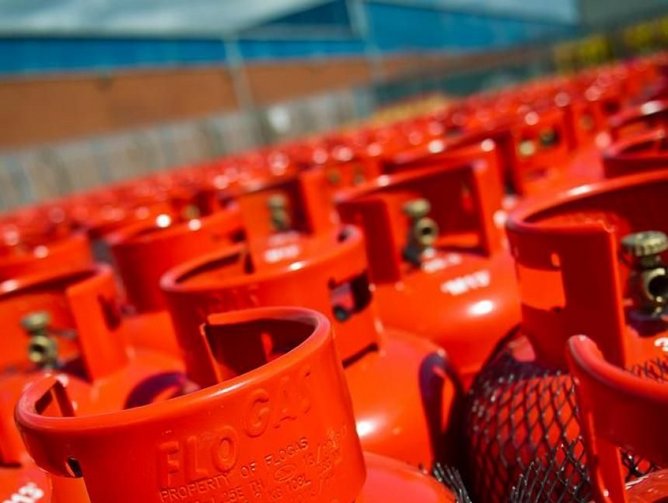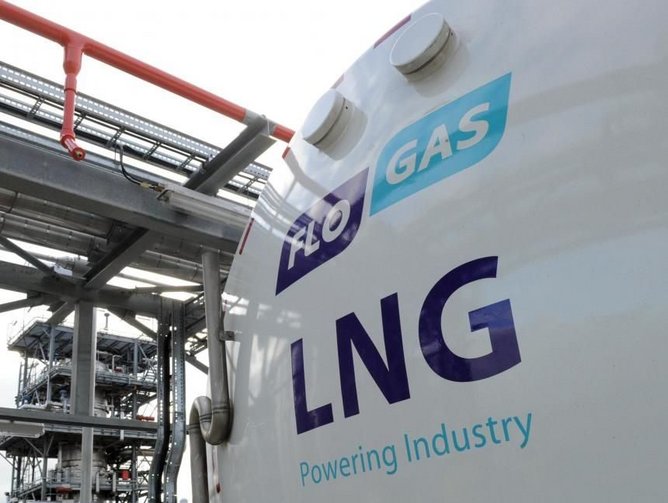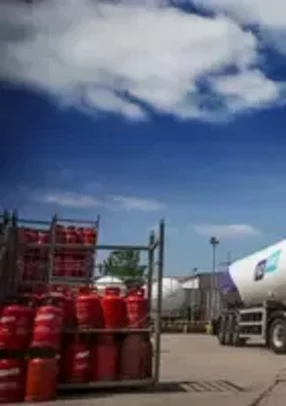Flogas has embraced digitisation in order to skill up its workforce and transform its supply chain
With the rise of renewable energy sources, traditional oil and gas companies are facing rampant competition.
The increased need to guarantee pricing and deliver operational efficiency continues to grow apace, leading the industry to turn towards new technologies to maintain supply and retain existing customer bases.
However, while the sector has focused predominantly on pricing, longstanding LPG supplier Flogas has maintained its reserves through its ongoing supply chain transformation.
“From a domestic and consumer point of view, there's some technology emerging that will make a key difference in the marketplace,” explains Head of Logistics and Supply Chain, Tim Eaton.
“Price is starting to become a lot more visible, so people can really start playing suppliers off against each other, and people can switch easily.
“The customer experience is key. We sell a commodity, so the way we differentiate ourselves without it being on a price basis is through the service we give to our customers. If we can maintain consistency of supply to our customers, that's really what they want. On the contact side, the focus of the business is on leading by service, and then differentiating this business within the number one supply of LPG from a customer service point of view.”
Digital focus
Seeking to break down silos and promote collaboration across its supply chain, Flogas is now halfway through its journey.
“We are trying to digitalise as much as we can - how we capture or create orders and how we move those through to being fulfilled and delivered,” says Eaton.
“We have a 50/50 split between people that are in control of their orders -where they physically order with us when they want us to deliver -and 50% where we offer them a service where we will keep their tanks topped up.
“For our Top Up business, we used to rely on fixed delivery cycles or an algorithm that predicted when they were going to need gas, but we have now invested millions of pounds into implementing tank telematic systems, where we get a regular reading regarding our customers’ consumption and tank levels.”
Obtaining vital information in real-time, Flogas has therefore moved to centralise its orders, where it can now draw volume at quieter times and outside of peak periods.
Additionally, by investing in a computer-based scheduling system, the business has adopted seven-day rolling scheduling periods and can identify potential gaps.
“Our new on-truck computing system, supplied by Touchstar, really ties all this together,” says Eaton.
“Scheduled routes go out to the driver, and when we complete a job an invoice then goes out in real-time. If we don’t deliver on that day it goes back to the order pot for rescheduling immediately.”
Reactive to proactive
Through the use of demand sensing, Flogas will continue to fulfil requests across its forecasting operations, as well as taking a greater look at customer consumption data to extrapolate three months of rolling forecast data.
“This will enable us to really try and set our resource levels for the next three or four months,” says Eaton.
“We want to take our resource management digital as well so that we always know what drivers and vehicles we've got to schedule.”
Through its on-truck computing system, Flogas will also seek to provide increased customer contact regarding the time its services will arrive.
“We're really getting to a point of system managing everything end-to-end,” he adds.
However, throughout its transformation, it has been imperative for Flogas to build mutually beneficial relationships with its suppliers and bring on board those who are keen to bring new ideas to the table.
“TouchStar Technologies, for example, have been fantastic in how they’ve tailored their Gas-Star solution to Flogas. The pace at which they can adapt the system to meet our need to continuously improve our service has been instrumental in adding so much value into our service proposition”
“The company has been essential in getting delivery data back in so that that speed of rescheduling, that speed of customer context, where we have or haven't delivered, is key to our service offering.
Additionally, longstanding company AIUT has been essential to the company’s business growth.
“AIUT has supported our delivery optimisation, as well as inventory management, in order to increase customer satisfaction,” adds Eaton.
“AIUT are not just a provider of a telematics system that we buy, they're a company that is integrated in how we do business. They suggested and built our new forecasting system.
“We need system providers and suppliers that are going to invest in their product to be bespoke to us, but to support that through continuous innovation around learning our business and what else they can do which could be of benefit.”
Investing in people
In alignment with its transformation, Flogas has had to bolster its workforce and invest in upskilling its workers against complexities.
“When we’re trying to build a digital system that takes the order through to delivery, we have to work out how to deal with the variability of that resource. We're working with our scheduling department as well as our shipping system to build some of this,” he says.
Consequently, the business has invested in new drivers and regional driver trainers that have enabled them to get to the required standard in weeks rather than months.
“Our telematics systems will look at how well they're driving from a safety point of view, and we are looking into getting better data out of the on-truck computing system so that we can look at things from a fully rounded point of view.”
As the supply chain continues to move towards further digitisation alongside a growing focus on margins, price and cost, the culture at Flogas will continue to hone in on the needs of its customers. Through boosting operational efficiency and maintaining supply while optimising ongoing processes based on local and expert knowledge, it will continue to remain a strong player in the market.
